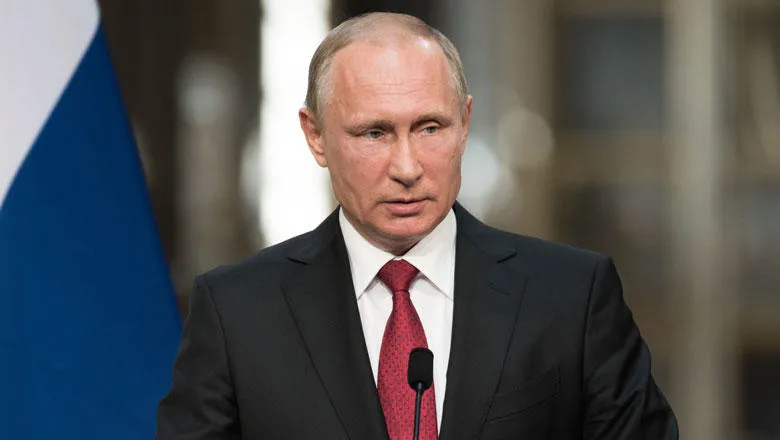In the past, Putin has been able to maintain robust political support from ordinary Russians, despite the worsening economy. However, our findings and the current protests we are seeing in Russia suggest his position is now becoming more vulnerable.
Dr Sam Greene
21 August 2019
New research suggests Putin's position is vulnerable
Dr Sam Greene, Director of the King’s Russia Institute, says the new research shows that only a third of Russians would vote to re-elect President Putin

Putin's popularity is waning
If elections were held now, only a third of Russian citizens would vote to re-elect President Vladimir Putin.
The recent nationwide survey of 1,206 Russians found that, while Putin remains by far Russia’s most popular politician, only 33.7 per cent of respondents said they would vote for him if elections were held "next Sunday".
These findings come as Moscow has seen more than a month of protests2 over attempts to bar opposition candidates from municipal elections there. There have also been smaller protests elsewhere in the country on issues ranging from corruption to environmental protection.
The survey is part of a larger research project led by Dr Samuel Greene, Reader in Russian politics and Director of the King’s Russia Institute, and was carried out between 29 July and 2 August this year.
It revealed that only 49 per cent of respondents said they approved of Putin’s performance as president – down from a high of 86 per cent in the months and years following Russia’s annexation of Crimea in March 2014, the eruption of war with Ukraine and geopolitical confrontation with Europe and the United States.
Since then, Russians have seen their real disposable incomes fall for six consecutive years, a fact that is also reflected in the survey results. Only 12.6 per cent of respondents said they were better off than they were a year ago, while 41.7 per cent said they were worse off, and virtually the same amount – 42.9 per cent – said there had been no change.
The politics of a divided Russia
Looking ahead, only 24.5 per cent of survey respondents thought that their livelihoods would improve over the next three years. Some 26.7 per cent said they expected their incomes to decrease over that period, while 21.2 per cent thought they would remain the same, and 27.5 per cent struggled to answer the question.
In the poll, 38.6 per cent of respondents said they thought the country was headed in the wrong direction, against 34.2 per cent who thought things were headed in the right direction.
The findings build on analysis carried out by Dr Greene and Dr Graeme Robertson, professor of political science at the University of North Carolina, for their book Putin v. the People: The Perilous Politics of a Divided Russia which outlined how the Kremlin has used a combination of emotional appeals and social pressure to build Putin’s public legitimacy – and how vulnerable his power is to changes in public sentiment.
Dr Greene argues that the Kremlin has, in part, recognised this vulnerability by hardening its stance towards the opposition, jailing almost all of the country’s most prominent opposition leaders and detaining thousands of ordinary protesters.
- The survey was based on a nationally representative sample and carried out by Qualtrics. Full data will be released in due course.
- See recent media reports of the recent protests in Moscow
- For longer trends in Putin’s approval ratings, see the Levada Center.
- Putin v. the People: The Perilous Politics of a Divided Russia (Yale, 2019)

